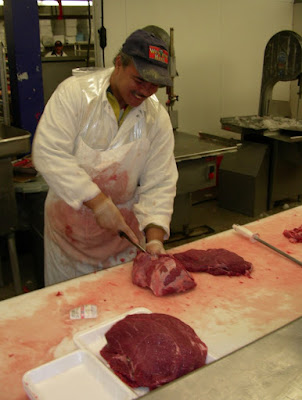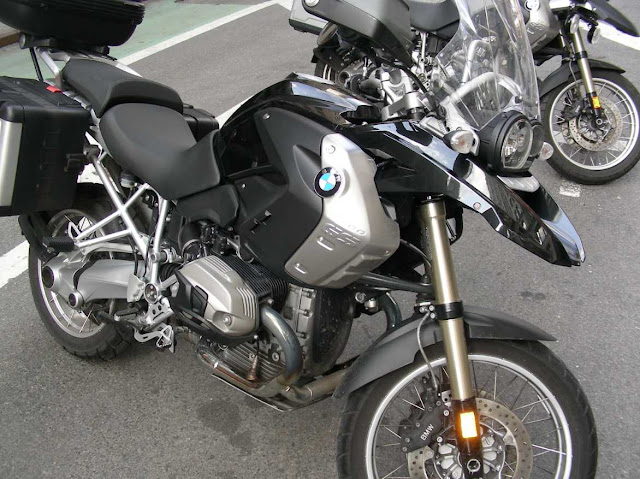The butchers at WesternBEEF are good guys. They enjoy their work in that very cold room and they really do try to please. And their prices are insanely low, too.
$.29 a pound, gotta love it.
So awhile back I decided to order a classic standing rib roast, a roast of beef with the rib bones intact. An old German butcher on the UpperEastSide named Dieter had been spoiling me for years at UpperEastSide prices, so I was interested to see how well the WesternBeef guys could do.
This roast from Dieter a couple years ago was about 12-13 pounds and over $20.00 per pound. $250 for a piece of meat is insane, I know. It was for a Christmas party.
But it was superb, see the rich marbling of fat within the meat? And the fatty layer left on top? It’s a beautiful thing, and it roasted to a T.
So how did the WesternBEEF boys do?
Well, first, the good news. This roast was about 7 pounds and only one fourth the per-pound price of Dieter’s roast, so barely $40.00 total. It had good color, decent marbling within the meat and was tied as expertly as I’ve ever seen it. All good.
But at that price it couldn’t be the same quality so to add flavor I rubbed it with a Moroccan dry rub I threw together in the spice grinder; some cardamom and cumin, a bit of ginger and black pepper, paprika and cloves, allspice and garlic and salt.
That’s whole cardamom in the grinder. But there was a problem, the butcher removed the fat layer and that’s unusual. Fat is flavor and typically you set the roast on the bones fat side up, so it naturally bastes itself while it roasts. Without the fat layer, this roast will turn out dry.
So I decided to bard it with raw bacon. What is “bard”?
Not this guy.
Wisegeek.com says:
“When meat is wrapped in strips of fat while it cooks, the practice is called barding. Barding helps to keep meat moist while it cooks, and also imparts flavor…….. the result is a rich, flavorful cut of meat which is also moist and tender. Bacon... (is)... commonly used as barding.”
See the roasted bacon? I pulled it out at an internal temperature of 130°F, indicated as “rare” on this meat thermometer. Now here’s the less-than-great news.
As suspected, quality counts; this roast was only so-so. My guests were kind and choked it down but we were in general agreement it was a large, rather flavorless and uninspiring piece of meat. The other things helped out.
Later I cubed the leftover roast, browned the cut edges...
...added stock and wine and onions and made a nice beef stew. Waste not want not.
But if you need a first rate prime rib for a dinner party, it looks like you might wanna take out a mortgage and get your roast on the UES.
Alas.













































